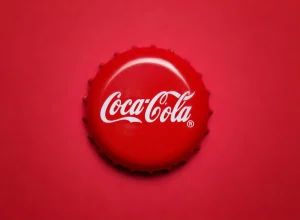The integration of artificial intelligence (AI) into the consumer market has begun reshaping the landscape of various industries, with the beverage sector, particularly in the realms of soda and alcoholic drinks, not being an exception. As consumer preferences evolve and technology advances, companies like Coca-Cola, Heineken, Red Bull, and Starbucks find themselves at a pivotal point, needing to adapt to maintain their market dominance. This article delves into how AI and changing drink behaviors are influencing these businesses, with a focus on innovation, sustainability, personalized marketing, and the future of beverage consumption.
AI in the Beverage Industry: From Production to Promotion
Coca-Cola’s AI Endeavors
Coca-Cola has long been a frontrunner in adopting innovative technologies to stay ahead in the competitive soda market. By leveraging AI, Coca-Cola has optimized its supply chain, improved product distribution, and even developed AI-driven vending machines that personalize the consumer buying experience (Park et al., 2020). Moreover, the company has employed AI algorithms to analyze consumer data and trends, leading to the creation of new flavors that cater to local tastes and preferences (Schultz & Block, 2019).
Heineken and AI-driven Marketing
In the alcoholic beverage sector, Heineken has more than likely embraced AI to enhance its marketing strategies. Utilizing machine learning, Heineken would analyze social media data to understand consumer sentiments and preferences, enabling more targeted advertising campaigns (Johnson, 2021). This approach not only improves consumer engagement but also allows Heineken to forecast market trends more accurately and most notably their marketing in Africa
Local special circumstances in Africa, such as cultural traditions and regulatory frameworks, also influence the Beer market and with the emergence of AI this is more data companies will tap into. In some African countries, beer is deeply ingrained in the local culture and is an integral part of social gatherings and celebrations. This cultural significance drives the demand for beer and supports its continuous growth. Additionally, varying regulations and taxation policies across countries can impact the availability and affordability of beer, affecting consumer choices and market dynamics.
Engaging with AI Consulting
Engaging with our AI consulting services offers you an unparalleled opportunity to leverage the expertise of leading professionals in the field. Our team is composed of distinguished experts from prestigious universities, seasoned veterans from renowned companies, and adept mergers and acquisitions specialists, all of whom bring a wealth of knowledge and experience to the table.
By choosing to work with us, you gain access to cutting-edge insights, strategies tailored to your specific business needs, and innovative solutions that ensure you stay ahead in the rapidly evolving landscape of AI. Whether you’re looking to enhance operational efficiency, drive growth, or achieve a competitive edge, our team is equipped to guide you through every step of your AI journey, ensuring your investments deliver tangible, impactful results.
Red Bull: Energizing the Market with Data
Red Bull stands out for its approach to marketing and consumer engagement, using AI to analyze performance data from sponsored athletes and events. This information helps tailor marketing strategies to appeal to the brand’s energetic and adventurous audience, ensuring content resonates more deeply with consumers (Smith, 2022).
Starbucks: A Pioneer in AI-driven Personalization
Starbucks has taken personalization to the next level with its AI-powered recommendation system, the Deep Brew program. This initiative uses AI to offer personalized ordering suggestions based on customers’ previous purchases and preferences, enhancing the customer experience and increasing sales (Miller, 2021).
Changing Consumer Behaviors: Health, Sustainability, and Personalization
Health-Conscious Consumers
Today’s consumers are increasingly health-conscious, favoring products that are low in sugar, calories, and artificial ingredients. This shift has prompted companies to innovate, offering healthier options to meet demand. Coca-Cola, for instance, has expanded its product line to include low-sugar and sugar-free alternatives, such as Coca-Cola Zero Sugar.

Sustainability: A Growing Concern
Sustainability is another significant factor influencing consumer choices. Brands that prioritize environmentally friendly practices tend to be more appealing. Heineken has responded to this trend by committing to carbon neutrality in its production processes by 2030 (Heineken N.V., 2023).
The Demand for Personalization
As mentioned, personalization is becoming increasingly important. Consumers expect brands to understand their preferences and tailor products and experiences accordingly. Starbucks’ Deep Brew AI program exemplifies how companies can use technology to meet these expectations, potentially increasing customer loyalty and spending.
Future Directions: Opportunities and Challenges
The intersection of AI technology and changing drink behaviors presents both opportunities and challenges for the beverage industry. Companies that can harness AI effectively have the potential to innovate, enhance sustainability, and offer more personalized experiences, staying ahead of competitors. However, this requires significant investment in technology and a willingness to adapt to rapidly changing consumer preferences.
In conclusion, the integration of AI into the beverage industry, alongside evolving consumer behaviors, is transforming the way companies like Coca-Cola, Heineken, Red Bull, and Starbucks operate and interact with their customers. The future of the beverage industry lies in leveraging AI for innovation, sustainability, and personalization, aligning with consumer trends toward healthier and more sustainable choices.
Countries, Behavior, and Their Healthcare Systems
Countries worldwide are increasingly leveraging artificial intelligence (AI) to transform their healthcare systems. In the United Kingdom, the National Health Service (NHS) has incorporated AI technologies to improve diagnostics and patient outcomes. For instance, AI-powered tools are being used to detect diseases like breast cancer earlier and more accurately than traditional methods. In 2023, the NHS began deploying AI algorithms to assist radiologists in interpreting mammograms, significantly reducing the workload and improving diagnostic accuracy (NHS England, 2023). Moreover, the NHS AI Lab was created to accelerate the safe adoption of AI in clinical settings, indicating a strong governmental commitment to integrating emerging technologies in healthcare.
Similarly, China has made significant strides in integrating AI across its healthcare infrastructure, particularly to address its large population and uneven distribution of medical resources. The Chinese government has promoted AI applications in areas such as medical imaging, electronic health records, and disease prediction. For example, iFlytek and Ping An Good Doctor—two of China’s largest AI health platforms—offer AI-based diagnostic and telemedicine services that have been widely adopted in both urban and rural areas (OECD, 2021). During the COVID-19 pandemic, China deployed AI for rapid CT scan analysis and contact tracing, demonstrating its scalability and responsiveness in public health emergencies. These advancements reflect China’s strategic emphasis on AI as a cornerstone of its “Healthy China 2030” initiative.
The successful integration of AI in national healthcare systems highlights its potential to be extended beyond clinical settings into areas like consumer behavior analysis, particularly in monitoring and improving habits such as alcohol consumption. By analyzing data from wearable devices, mobile apps, and electronic health records, AI can identify harmful drinking patterns and provide personalized feedback and interventions. For example, AI-driven platforms can send real-time alerts, recommend healthier lifestyle choices, or connect individuals to support services. This approach not only empowers individuals to take control of their health but also aids public health agencies in developing targeted strategies to reduce alcohol-related harm, ultimately contributing to a healthier society.

